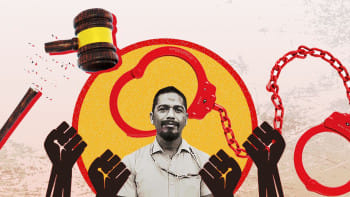Why are state officials wary of RTI requests?

One of the issues that trouble RTI activists in Bangladesh is its culture of official secrecy as well as bureaucratic resistance to attempts at ensuring transparency and accountability. It is, therefore, not surprising to learn of the reaction of state officials to information requests made under the Right to Information (RTI) Act, as revealed by the Information Commission's 2023 annual report. According to the report, compared to 2022, last year saw an increase in the instances of officials delaying or denying RTI requests, especially about development projects and use of funds. Overall, 686 complaints were lodged by applicants who were denied information.
The annual report also contains details that help us understand how the RTI law is faring. For example, a total of 8,747 information requests were submitted to various public offices in 2023. Of these, 7,950 were granted. The numbers are admittedly small relative to our total population, which suggest that citizens in general are still not properly aware of their rights under the RTI act and the procedures for filing requests. What's more concerning, however, is the continued practice of evasions and obstructions in disclosing critical information. This bears particular significance for journalists who are usually the most active group when it comes to making RTI requests and complaints.
Some of the instances in which journalists faced resistance have recently come to light. In one, a journalist based in Khagrachari sought information about some projects under the Roads and Highways Department (RHD). But not only were his request and subsequent appeal ignored, the relevant official even made undue demands for fees. Later, after investigating the case, the Information Commission ruled that there were indeed deliberate obstructions. Sometimes even harsher treatments are to be expected, such as in the case of a journalist in Sherpur who, in March, faced arrest and even imprisonment following his application for information. This is totally unacceptable.
True, most of the RTI requests today are still fulfilled, but those are mostly related to matters for which the RTI act is not exactly necessary. It is the pursuit of critical information about public offices/projects where the law's intervention is most urgent, and where the challenge for the authorities lies. Public officials, experts say, are often reluctant to share such information because of irregularities and corruption. The government, therefore, must ensure that it does not happen. It must facilitate unrestricted access to such information and help ensure transparency and accountability in public sector.


 For all latest news, follow The Daily Star's Google News channel.
For all latest news, follow The Daily Star's Google News channel. 










Comments